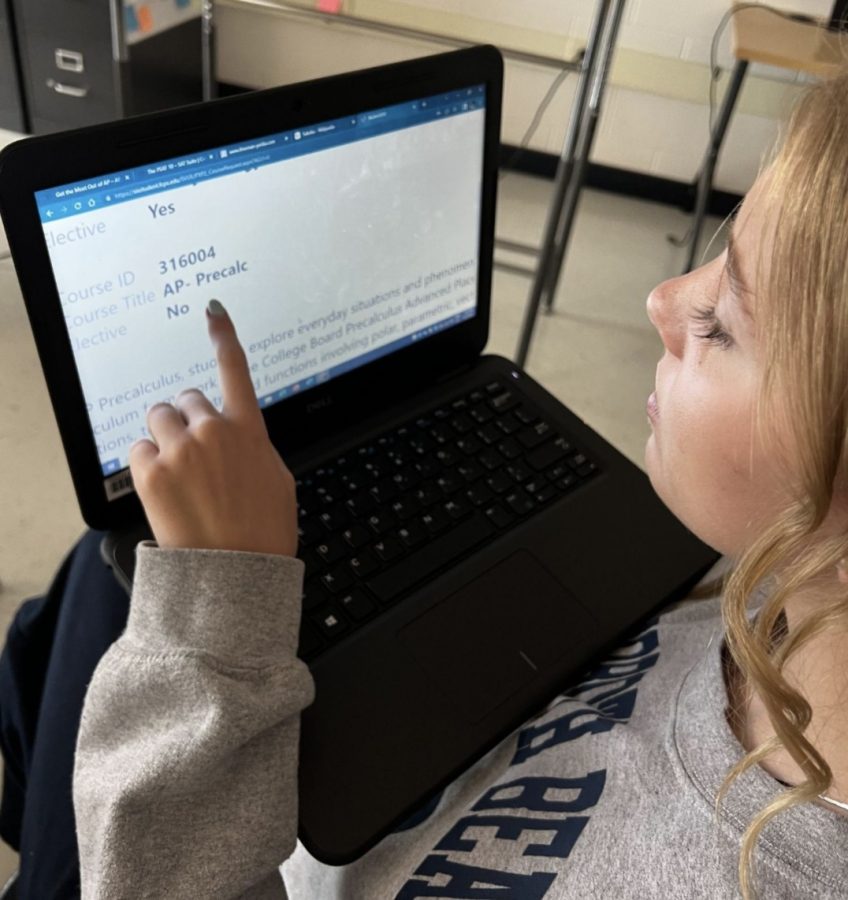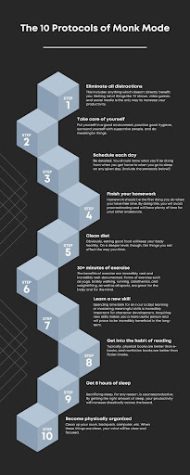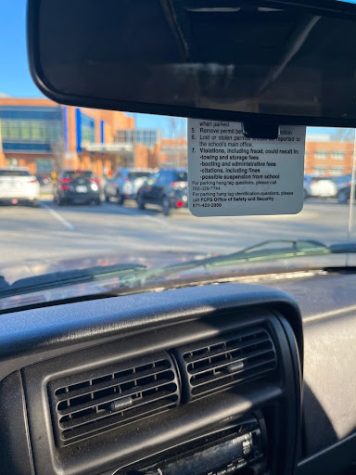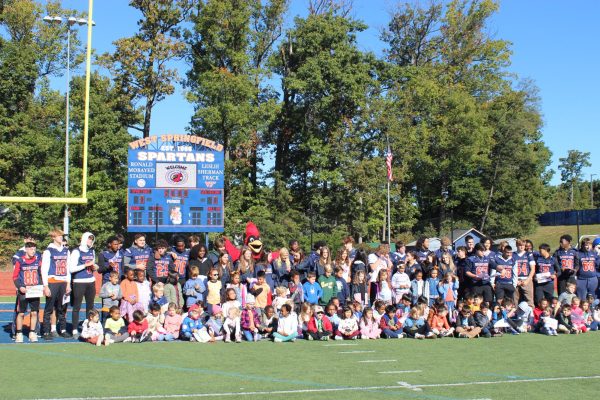Pick your poison: AB or BC Precalculus?
Photo courtesy of Zoe
The leap from general Precalculus to AP Precalculus has some students contemplating whether this class is for them or not.
There has been a new addition to the math department. Precalculus has made the jump from honors to AP, and students and teachers alike are anticipating the change.
Precalculus is a rigorous course that combines a student’s knowledge of both Algebra and Geometry to better prepare them for more challenging math courses, such as Calculus, in their future. Precalculus courses were once only offered as either a general or honors class. Now, honors Precalculus has been discontinued, as AP Precalculus AB and BC have come in its place with some new changes to the curriculum.
“It’s now kind of a unified course for the whole country and maybe internationally,” revealed Becky Barnes, a future AP Precalculus teacher and current honors Precalculus teacher. “The things that we will learn will be a little bit different.”
According to Betsy Fawsett, Assistant Principal and Director of the math department, both AP Precalculus AB and BC teach the same fundamental concepts, while BC offers an additional topic that is not being tested on the AP Precalculus exam. This means that not only will the BC classes be moving at a faster pace, the content will also tend to be more difficult than AB classes. In addition, a student taking AP Precalculus BC will have the opportunity to take both AP Calculus AB and BC. In contrast, a student taking AP Precalculus AB will only be able to take AP Calculus AB. This leaves students questioning which class would be more beneficial to take.
“I chose to take AP Precalculus AB because I don’t want to take a regular math class and wanted to challenge myself with an AP course,” explained sophomore Erica Taboh.
Some math students are looking forward to challenging themselves by taking the most rigorous course available to them.
“I’m taking AP Precalculus BC because I really enjoy math and wanted to take the hardest math class available,” said sophomore Marcus Reese.
There are many different factors that allow a student to determine which class would be best suited for them. Their performance in their previous math classes and their work ethic all play a role in how they will perform in an AP math class. Yet, even with the differences between the two variations of the course, students have not seemed to display a preference for either one.
“We’ve noticed that the AP Precalculus AB and BC classes both have five periods with an almost even amount of students. There seems to be no favoritism between the two,” analyzed Fawsett.
AP Precalculus is going to be a new learning experience for both students and teachers. Many teachers who are planning on teaching this new course are well versed in the standards of an AP class and higher level math classes. But, there are still going to be new concepts that teachers must learn in order to educate their students.
“There are a few topics that I’ve never taught before that I still need to study,” began Barnes. “There’s a new topic called ‘semi log plots.’ It’s definitely unique and different, so the class will require learning on my end.”
A new opportunity to learn something new is always an amazing goal for both students and teachers alike. With these new concepts, this allows students to grow alongside their teachers and learn with them. Fortunately, the majority of what is going to be taught is fairly similar to what is being taught currently.
“Luckily most of it is similar to what we’ve done in Precalculus before, but there are some things that are new,” explained Barnes.
Barnes has an avid enthusiasm for this new course and is excited to be able to not only teach students about AP Precalculus, but teachers too. Barnes is one of only 40-50 teachers nationwide who will be flying out to other states in order to educate other teachers on how to efficiently teach this new class. Barnes was immediately interested in becoming an AP Precalculus teacher because of the program setup by College Board, alongside her dedication to math.
Many teachers are also ecstatic about this new change. They are hopeful that it will create a new path of opportunities for students who would not otherwise have been able to take an AP math class.
“A lot more students have access to the course, so there’s gonna be a lot more students in the future that will be prepared to take AP Calculus, AP statistics, and other more challenging math classes. It’s gonna give a lot more students an opportunity to take an AP math, and I think a lot of teachers are excited about that,” said Barnes.
Students are filled with speculation and jitters about this new course while teachers immerse themselves in excitement. For most, the anticipation for how these new classes will operate is definitely an interesting topic of discussion.











